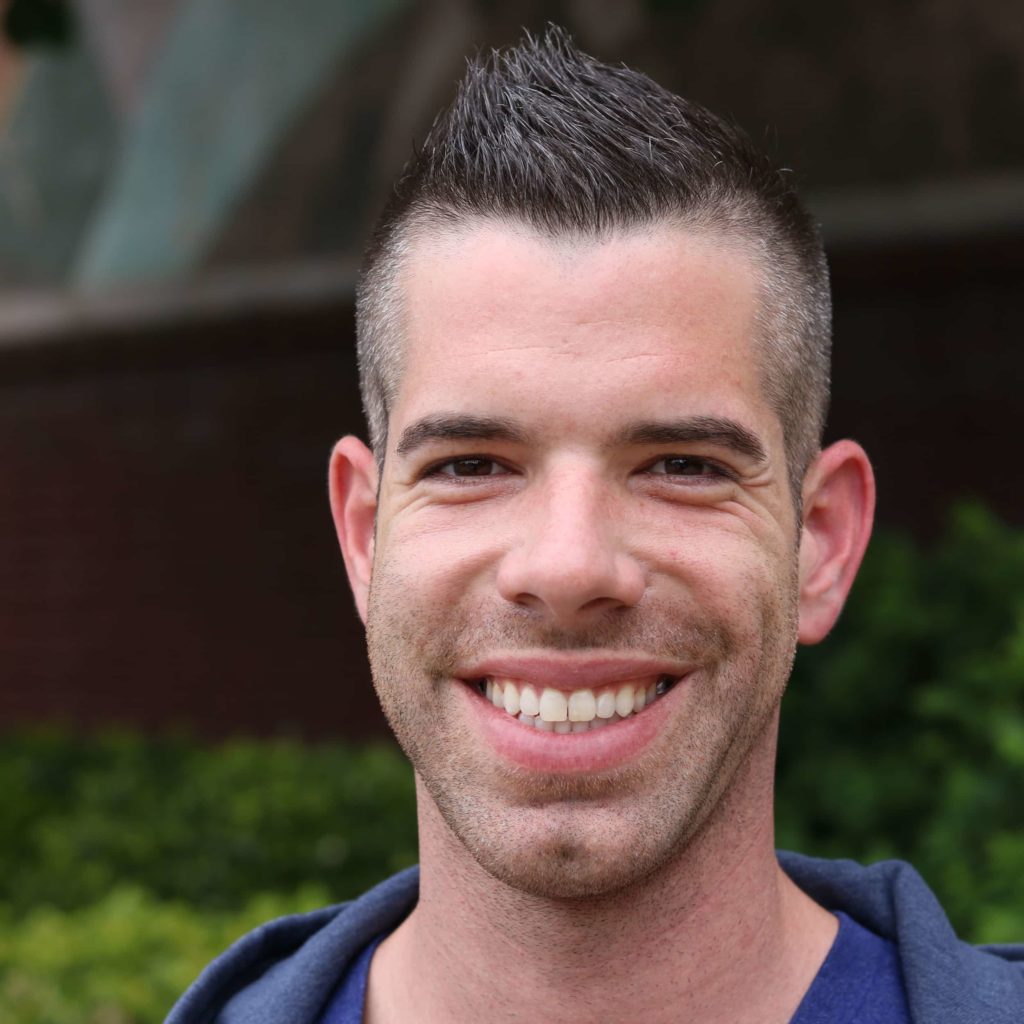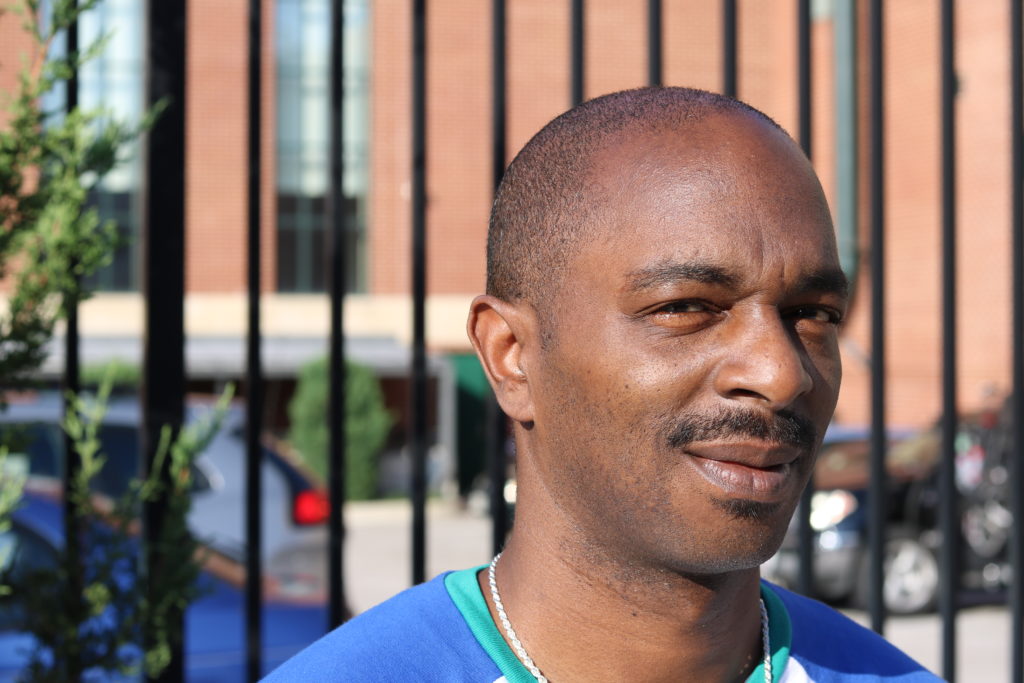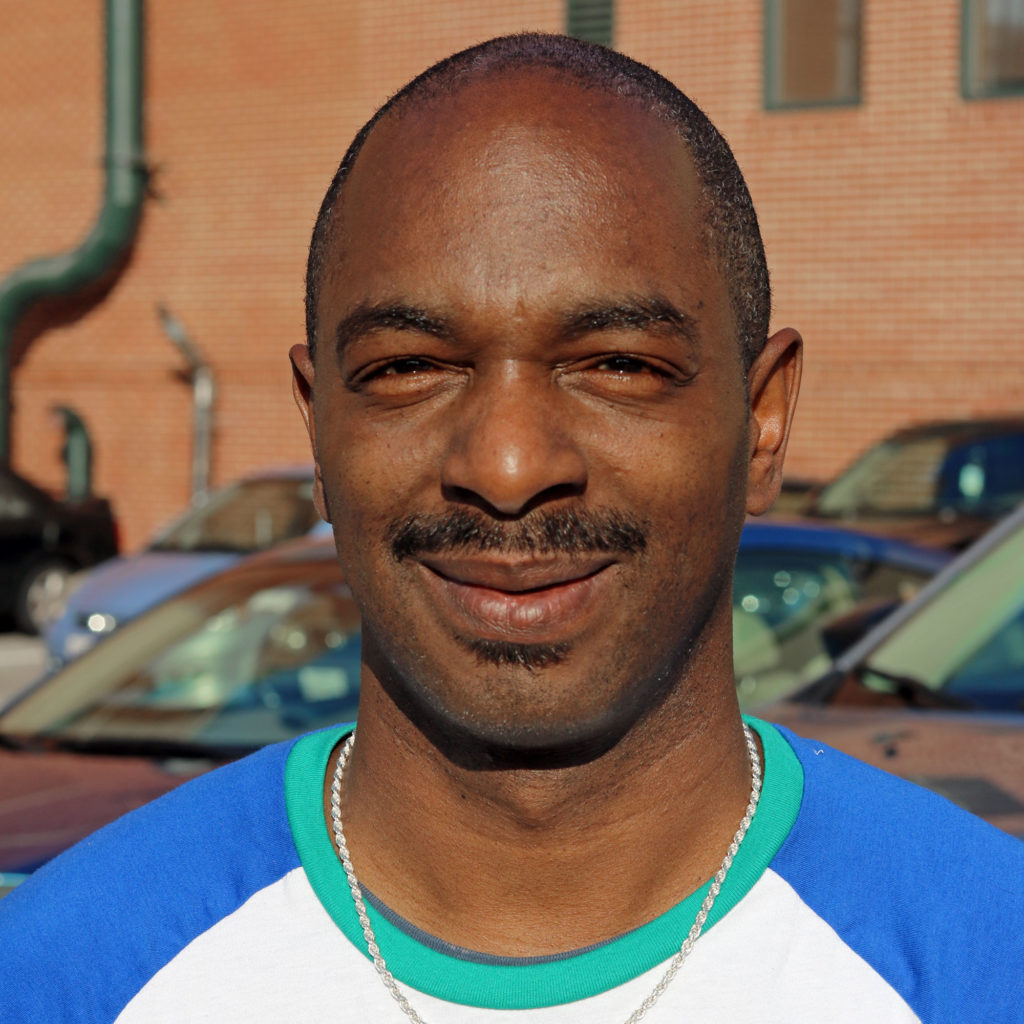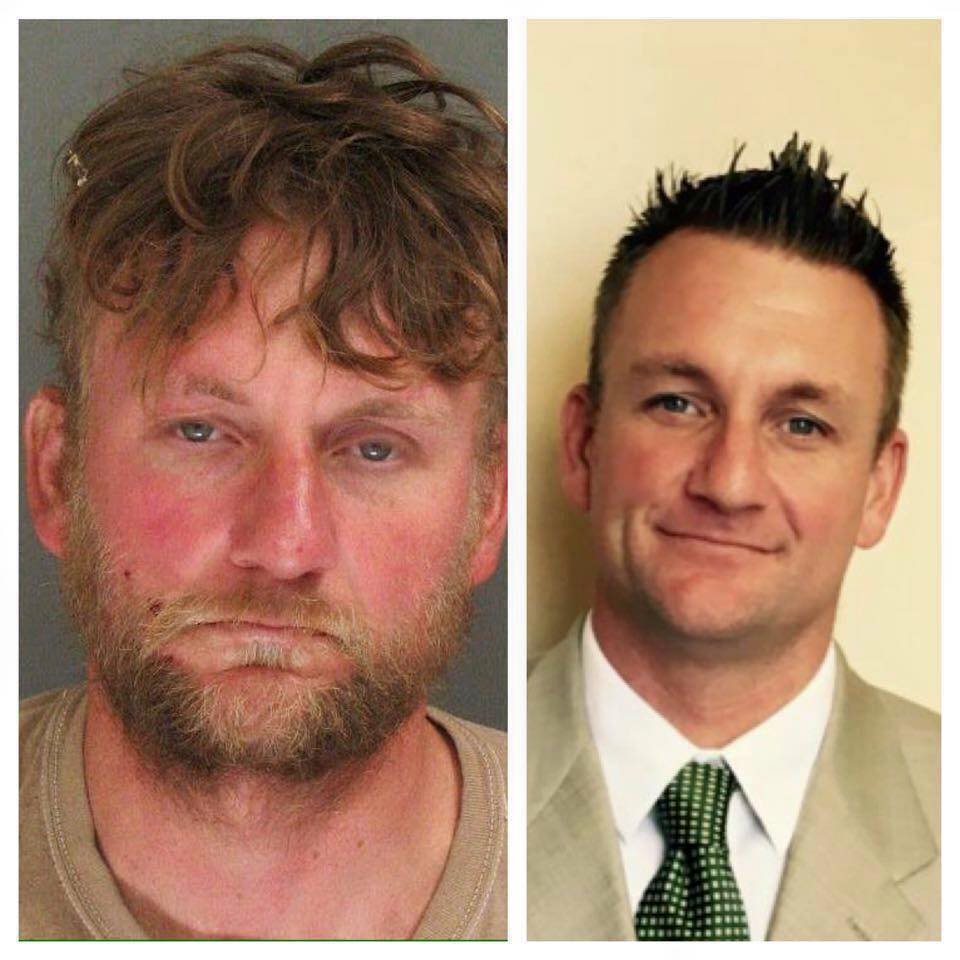January 2022 NL Feature Story – Scott W.
“HUM has helped me get new teeth, new glasses, expunge my record, and even try the benefits of acupuncture. There is just too much good happening daily.”
Scott, age 45, was born and raised in Baltimore, Maryland. When Scott was a child, his family did a lot of moving around. “I was in and out of school and always the “new kid.” I was also short and heavyset. This combination resulted in me always being made fun of. So, I dealt with the humiliation by learning how to become a recluse. And I recognized my first addiction as being food,” recalls Scott.
“I was born Methodist, but my father’s side of the family was Roman Catholic. I was uncomfortable. I felt like everything that I did wrong would result in me going to hell. I had my first drink at the age of 10, sneaking a shot while nobody was watching. When I was a sophomore in high school I was “hanging out” with the skateboard crowd and started smoking marijuana daily.”
“After high school, I was looking for a career. A lot of my family were either police officers, fire fighters, or in the military. My grandfather was a Marine, and he used to come over and tell “war stories.” I was intrigued. I always thought growing up that I was not getting the love that I craved and yearned for from my family. And if I joined the Marines, then they would be proud of me.”
“I impulsively made choices of the direction that I wanted to go in my military career. And that was not the best choice for me. I ended up having a breakdown and they put me in the mental health ward for two weeks. I had already been dealing with low self-esteem, from my parents drinking. My father was a heavy drinker and a terribly angry person. Prior to the military, I had dealt with a lot of childhood trauma, physical abuse, and mental abuse. The military made me feel like I was nothing and I could not handle it. They discharged me.”
“After that, I would escape reality. Whether it was drinking, going to bars, or smoking crystal methamphetamines. I was out there “ripping and running” two, three, four days in a row. This is when I realized that I had a problem. I did not talk about anything, and I internalized everything. I just wanted to escape. I worked job after job, had relationship after relationship, and even went to prison from 2003 until 2006 for theft. I just could not stop using.”
“In 2017, I was in the Howard County detention center. I told them that I was a common addict and begged them not to release me. I told them that I was going to die if I went back out on the streets. But they had already made the decision to release me. I found myself walking down Washington Boulevard heading towards Baltimore City when I stumbled upon this little church (Grace Reformed Presbyterian Church) in Relay. It looked like something right out of an old movie. I cried out, God if you are real, I am going to walk into this church and throw myself on the floor. I need help and I cannot go another day like this. So, I walked in while they were having a service and they invited me to stay. An interim pastor Josiah sat me down. He said, “I have a good friend chaplain Vic King at Helping Up Mission (HUM), and I am going to give him a call.” Vic reserved a bed for me in Overnight Guest Services (OGS), and that is when I started my recovery journey.”
“In 2018, I graduated from the Spiritual Recovery Program (SRP), moved out, and was doing well. Soon my meeting attendance started dropping and I was not being open and honest with myself. But the seed of recovery had been planted and I knew that I had to come back to HUM. I enrolled as a Graduate SRP member and graduated again in 2020. Unfortunately, I was moving too fast, and I left the program in order to deal with life on my own terms. That did not work out. One day, I was lying there ignoring phone calls when I got a call from Frank Haddix (Client Services Manager). I answered it, started crying, and told him that I could not live like this anymore.”
“Once again, I came back to HUM. This time I walked through the doors and told God, “I am completely free of myself. I am open and willing to surrender to You. That is why I am going to college. I want to help people that suffer from the same disease that I suffer from. I just want to serve the Lord in everything that I do. With my degree, the first in my family, I want to become a licensed clinical alcohol and drug counselor. I have recently been offered an intake intern position. When I was a Marine, I was an infantry man, and now I will be working on the front lines of recovery!”
“HUM has helped me get new teeth, new glasses, expunge my record, and even try the benefits of acupuncture. There is just too much good happening daily. And I just want to thank you for your kindness. Guys come here with nothing and leave with everything. You are appreciated and I am living proof!”



